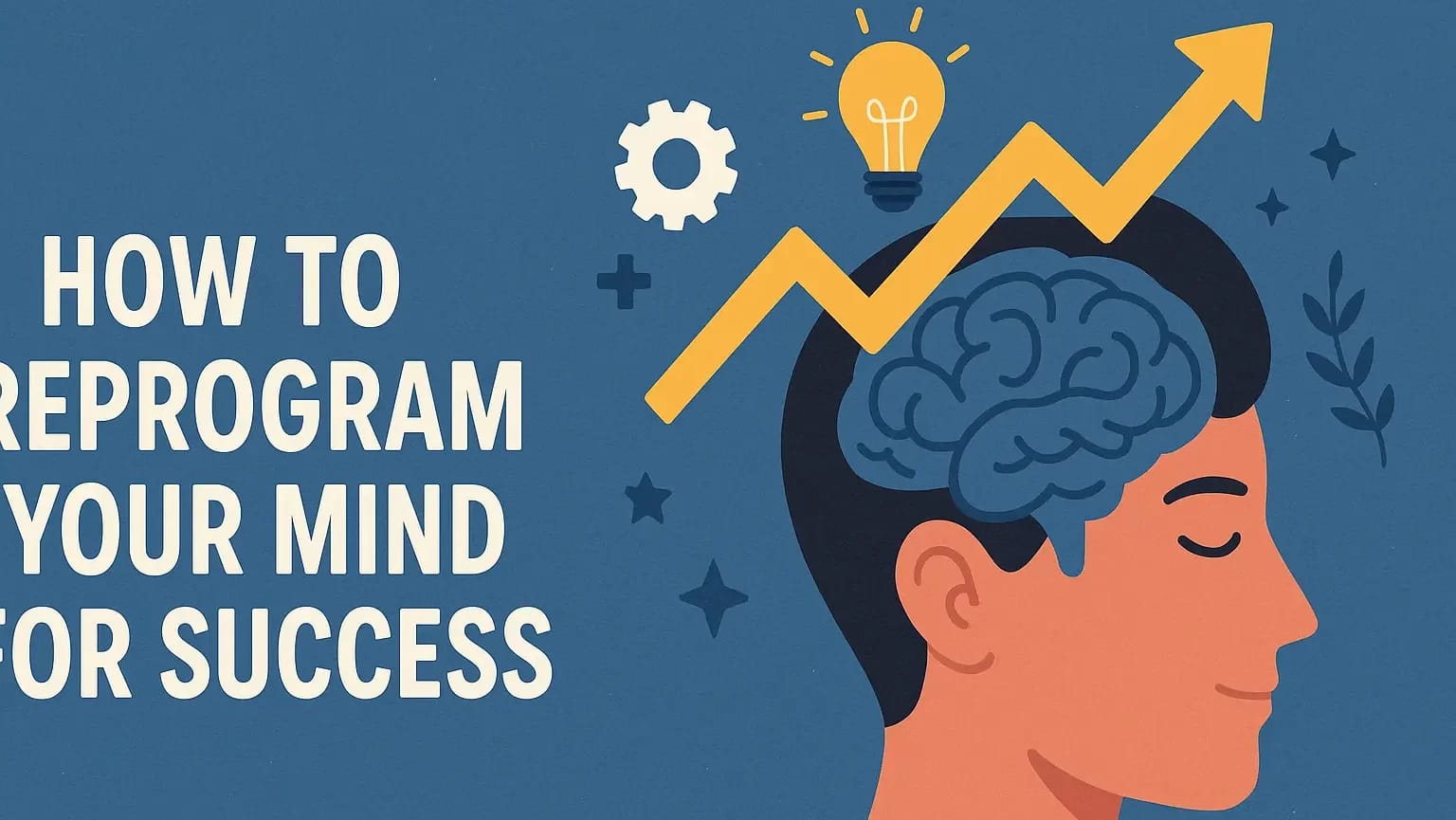During the 2016 Rio Olympics, an angry death scare encapsulated the face of Michael Phelps. As he waits for his swimming event to begin, his rival, Chad le Clos, stands mocking him.
As the race began, Phelps maintained a steady lead in front of Le Clos and the six other swimmers. Phelps’ focus was on the race, while Le Clos’ focus was on Phelps. A famous picture of Le Clos peering over to Phelps’ lane was taken, encapsulating the profound difference in their mindsets. Phelps’ determination to stay in his lane and concentrate on his performance exemplified the importance of focusing on one’s journey rather than getting distracted by others.
Everybody on this planet is on their journey. But as humans, it’s tempting to peer into the lane beside us and see how others stack up against us. However, the more we compare other’s progress to ours, the more strain this puts on our mental health and overall well-being.
Pivoting your focus on yourself isn’t selfish; it’s necessary. When you do so, you become a more healthy and reliable vessel of happiness, which you can project onto others. Additionally, your source of happiness originates from within instead of from others, making you happier, fulfilled, and content overall.
In this article, we’ll be uncovering the top ways to stop comparing yourself to others.
1. Evaluate your strengths and weaknesses
Regardless of socioeconomic status, upbringing as a child, or ethnicity, you’ll never be perfect. The cause of this imperfection is rooted in our nature as human beings. We’re born imperfect, so we’ll live the rest of our lives imperfectly. Plus, the definition of perfectness varies from person to person. Some believe a flawless life consists of masses of wealth and possessions, while others would easily disagree.
We can best evaluate between two items with the use of a pen and paper. On a sheet of paper, write down a T-chart labeled with strengths on one side and weaknesses on the other. Under strengths, list down everything you believe you’re good at. Under weaknesses, write down the areas you wish to improve in.

By identifying your strengths and weaknesses, you eliminate the belief that you’re already perfect. This activity serves as a humbling reminder that there is always room for improvement. Knowing there’s still work to get done encourages you to focus on yourself.
2. Reflect on your purpose
We all have a reason we get out of bed every morning, whether it be school or work. These two seemingly mundane aspects might not appear to correlate with our purpose at first glance; however, they play a significant role in our character development. The growth we experience through these daily activities makes us more suited for fulfilling our purpose.

Some discover their purpose earlier than others, and the more we reflect on it, the more we realize how distinct we are from everyone else. This process takes time, but we can start taking steps today by defining the values that matter most to us and asking what impact we would like to leave on the world.
Once your purpose becomes more evident, you’ll focus on yourself more. You’ll naturally stop comparing yourself to others because the success you wish to achieve becomes more important than what others have already accomplished.
3. Practice gratitude
In our society today, there will always be somebody “better” than us who possesses something we desire. Whether it be wealth, status, or relationships, our human desires often consist of needs and wants. As a result, we may struggle to find happiness because we constantly look at what others have.

Establishing a routine of regular gratitude practice allows us to count our blessings and realize how fortunate we are. Gratitude shifts our mindset from pessimism to optimism, helping us appreciate our lives instead of comparing ourselves to others.
4. Spend time pursuing hobbies
Our lack of self-love often prompts us to compare ourselves with others, seeking validation and a sense of self-worth. This cycle stems from internal discontent, driving us to measure our qualities against others. However, a more effective path to cultivate self-love exists: spending meaningful time alone, despite many critics that doubt its effectiveness.

During this alone time, we should engage in hobbies that bring us joy, as they help us relax and find fulfillment in honing our skills. Pursuing hobbies gives you more time to focus on yourself and less time to compare yourself to others. Furthermore, the sense of contentment from these activities eliminates any desire to make meaningless comparisons.
5. Eliminate social media
A survey conducted by ID Crypt Global revealed that one-third of 18-25 edit or doctor their posts before posting them on social media.
While social media intends to help us stay connected with friends and family, others use it as a gold mine to seek validation. From photoshopping pictures to garnering more likes, social media has become a platform where individuals often present falsified versions of themselves for validation. Regular exposure to these distorted perceptions makes us more prone to comparing our lives with the seemingly perfect lives we see online.

Prolonged social media usage is one of the biggest time wasters. By eliminating it, you free up more time to focus on yourself. It also reduces the tendency to compare yourself to others since you’re no longer exposed to the false, edited version of success people flash online.
Still wondering if you should keep social media? Read here.
6. Practice meditation
A slowly dripping but leaking pipe will continue to leak until somebody notices the puddle of water or mold growing in the surrounding areas. The same applies to our minds. That destructive habit we have of comparing ourselves to others will continue to persist unless we notice and put an end to it.
Being conscious of our thinking, however, is easier said than done.
Comparing yourself to others is a habit you’ve been practicing for years, so going cold turkey and stopping yourself will nearly be impossible. Regardless, like any bad habit, with effort and consistency, we can overcome it.

The most effective way to prevent your mind from wandering into envy and making unconscious comparisons is through meditation. Meditation grounds us in the present moment, offering a front-row seat to our minds. By noticing when we start making comparisons, our meditation practice helps us snap out of it.
For more benefits of meditation, read here.
7. Learn to be content
The society that we live in today is obsessed with the idea of achieving more. Did you get hired for a high-paying job? Find a way to make more money. Have you built a great circle of friends? Find ways to make even more friends. Continuing to seek more ambitiously isn’t necessarily bad, but we’ll never be content if we’re always concerned with more. Like running a race, we keep running instead of stopping at the finish line.

Contentment is about reaching a point where you have enough and recognizing when to stop striving for more. By doing so, comparing ourselves to others becomes less relevant because we learn to be satisfied with what we have, regardless of others’ achievements. Despite there being people with more around us, we’ve learned that we already have enough.
8. Focus more on the journey and less on the competition
With seven billion people on this planet, saying that life doesn’t feel like a competition is a lie. You know those goals you’ve had for a long time? Thousands of others possess as well. Life may feel like a competition, but we must realize everyone is on their path toward success. By worrying about the success of other people, how will you focus on achieving success for yourself?
Your Life is a book written by you, the author. To make this book stand out from others, wouldn’t you avoid copying someone else’s work? That way, the finished products consist of unique twists of your own instead of becoming a duplicate of somebody else’s work.

The shifting perspective on life from a race to an individual journey encourages you to focus on yourself and less on others. Instead of competing against others, you’re competing against yourself, finding ways to succeed in all areas of your life.
Conclusion
In conclusion, constantly comparing ourselves to others hurts our mental and spiritual health over time. The more we compare others’ flaws and weaknesses to our own, the more self-conscious we become of our shortcomings, allowing them to control our lives. Overcoming this habit requires us to take action to prevent our minds from constantly making these judgments and comparisons.
We can start by acknowledging our strengths and weaknesses, reflecting on our purpose, and expressing gratitude for the blessings we already have in our lives. We can then take practical steps to keep us from making comparisons to others by eliminating social media and becoming more conscious whenever we compare ourselves to others.
What steps will you take today to keep yourself from comparing yourself to other people?



